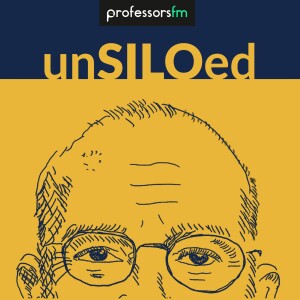
How can finance professionals balance self-interest, client service, and the greater good? While finance is often portrayed as an occupation that is fraught with self-dealing and unethical behavior, it can also be an arena for promoting good and even a path to a life of virtue.
JC de Swaan argues for this idea in his latest book “Seeking Virtue in Finance: Contributing to Society in a Conflicted Industry,” de Swaan teaches at Princeton University, and is also a partner at Cornwall Capital.
How do you prevent the norms of the industry from changing who you are? Greg and JC discuss this idea, as well as Robinhood, ethical career choice, saying no to a client, and teaching Ethics in Finance.
Episode Quotes:On ethics & finance:
I think my entry point into this topic of ethics and finance is this idea that finance tends to be played as a complex game with its own rules. And as long as you play within well-defined, narrowly defined rules, then it's a force for good. And finance professionals by and large tend to be a little unquestioning, as to the fact that what is good for them is good for their clients and what is good for their clients is good for them. And then as a result, it's good for society, but we know that that's not the case.
What kind of student he likes to teach:
I generally want that diversity of views. I want like half of the students who are going to be, those who since they were 12, they woke up early to watch CNBC and they're trading their own portfolio, and they're really gung ho by then, and they know the language and all that. And I want the students who are super distrustful of the industry and don't believe that it's a force for good.
Trading with care:
And the way I think about it is that as you think of your professional mandate, and to your point, it's not just giving to clients anything they want, but it's also promoting the kind of products that you would suggest to members of your family. Or members of your tribe, the people that you actually cared about. Right? And so this idea that if you are promoting a product that you would never want your children to buy, for instance, or your mother, or whoever you really cared about, then that's a red flag.
Guest Profile:
- Faculty Profile at Princeton University
- Professional Profile at Princeton University
His work:
- Seeking Virtue in Finance: Contributing to Society in a Conflicted Industry
More Episodes
Create your
podcast in
minutes
- Full-featured podcast site
- Unlimited storage and bandwidth
- Comprehensive podcast stats
- Distribute to Apple Podcasts, Spotify, and more
- Make money with your podcast
It is Free
- Privacy Policy
- Cookie Policy
- Terms of Use
- Consent Preferences
- Copyright © 2015-2024 Podbean.com







